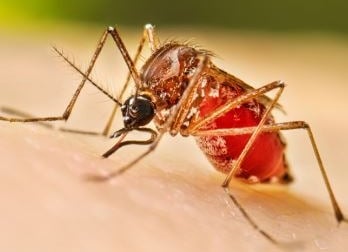Noida on Dengue Red Alert: Rising Cases Put Pregnant Women at High Risk, Doctors Urge Extra Caution
Noida is witnessing a sharp rise in dengue cases, triggering serious concerns among residents and health experts. Hospitals across the city are reporting a steady flow of patients, with many cases requiring urgent medical intervention. What has alarmed doctors most, however, is the growing vulnerability of pregnant women, who are now being flagged as a high-risk group in the current outbreak.


By: Bharat Daily Samachar Date: 22 Sep,2025
Dengue Crisis Deepens in Noida
Noida is witnessing a sharp rise in dengue cases, triggering serious concerns among residents and health experts. Hospitals across the city are reporting a steady flow of patients, with many cases requiring urgent medical intervention. What has alarmed doctors most, however, is the growing vulnerability of pregnant women, who are now being flagged as a high-risk group in the current outbreak.
Dengue, a mosquito-borne viral disease, is not new to Noida or the National Capital Region (NCR). But this season, the number of cases has surged far beyond expectations. Health authorities fear that the situation may worsen further if immediate preventive measures are not taken at both community and household levels.
Pregnant Women Face Greater Danger
Doctors have issued a special advisory for expectant mothers, warning them to remain extra vigilant during this outbreak. Pregnancy already involves a delicate balance in the immune system, and dengue can add dangerous complications such as severe dehydration, risk of internal bleeding, preterm delivery, or in rare cases, miscarriage.
Medical experts highlight that dengue infection in pregnancy not only affects the mother but may also lead to low birth weight, premature birth, or neonatal complications. The combination of reduced immunity and increased vulnerability makes timely detection and treatment absolutely critical.
“Pregnant women with even mild symptoms—like fever, body ache, or rashes—should consult a doctor immediately instead of waiting for the fever to subside on its own,” said one senior gynecologist in Noida.
Hospitals Overcrowded, Health Staff on Alert
Hospitals in Noida, Greater Noida, and nearby regions have begun to witness long queues of patients complaining of high fever, severe body aches, and low platelet counts. Dedicated dengue wards are being readied in both government and private hospitals.
Doctors are urging residents not to ignore early symptoms. Unlike a seasonal viral fever, dengue requires close monitoring of platelet levels and immediate supportive care to prevent complications. Pregnant women, children, and the elderly are being treated as priority patients given their higher risk.
Stagnant Water – The Silent Culprit
At the root of the outbreak lies a familiar enemy: mosquito breeding in stagnant water. With recent rainfall, waterlogging in streets, construction sites, and even residential colonies has become a breeding ground for the Aedes aegypti mosquito, the primary carrier of dengue.
Municipal bodies have intensified fogging operations and awareness drives, but health experts warn that real change can only come when residents actively participate in prevention efforts. Even something as small as water left standing in flower pots, coolers, or discarded plastic bottles can trigger mosquito growth.
What Residents Can Do
Doctors and civic authorities recommend simple but effective preventive steps:
Eliminate stagnant water in and around homes.
Use mosquito repellents and nets, especially during daytime when Aedes mosquitoes are most active.
Wear full-sleeved clothing to minimize exposure.
Pregnant women should avoid crowded hospitals unless necessary and ensure regular prenatal checkups.
Maintain hydration and proper diet to support immunity.
Government Response
The Noida Health Department has launched emergency measures to combat the surge. Daily fumigation, community inspections, and awareness campaigns are being carried out across housing societies and villages. Schools have also been instructed to take precautions by ensuring mosquito-free premises.
Doctors believe, however, that despite government efforts, it will take collective responsibility from citizens to control the spread. “No public drive will succeed if households don’t eliminate mosquito breeding sites,” a health officer emphasized.
Lessons From Past Outbreaks
Noida has faced dengue scares before, but experts say the current season appears more aggressive due to a combination of weather conditions, high urban density, and lack of awareness. Compared to previous years, this outbreak has seen more severe cases being admitted to intensive care units.
The focus on pregnant women highlights the need for targeted health advisories that address vulnerable groups instead of generic warnings. This shift could help reduce fatalities and complications if families act promptly.
A Call for Vigilance
As dengue cases rise, the message from doctors is clear: early detection saves lives. Pregnant women, children, and those with existing health issues must take every precaution. Unlike many other seasonal illnesses, dengue cannot be taken lightly, and negligence can prove costly.
For Noida residents, this is a wake-up call to treat dengue prevention as a shared responsibility. From simple steps like covering water containers to community-wide drives, every effort counts in keeping the outbreak under control.
Final Thoughts
The dengue outbreak in Noida has put the spotlight not only on urban healthcare preparedness but also on individual responsibility. For pregnant women, the risks are particularly high, making vigilance non-negotiable. With timely awareness, preventive action, and early medical care, the city can navigate this health challenge.
As one doctor aptly said, “Fighting dengue isn’t just about medicine—it’s about prevention, awareness, and community discipline.”
